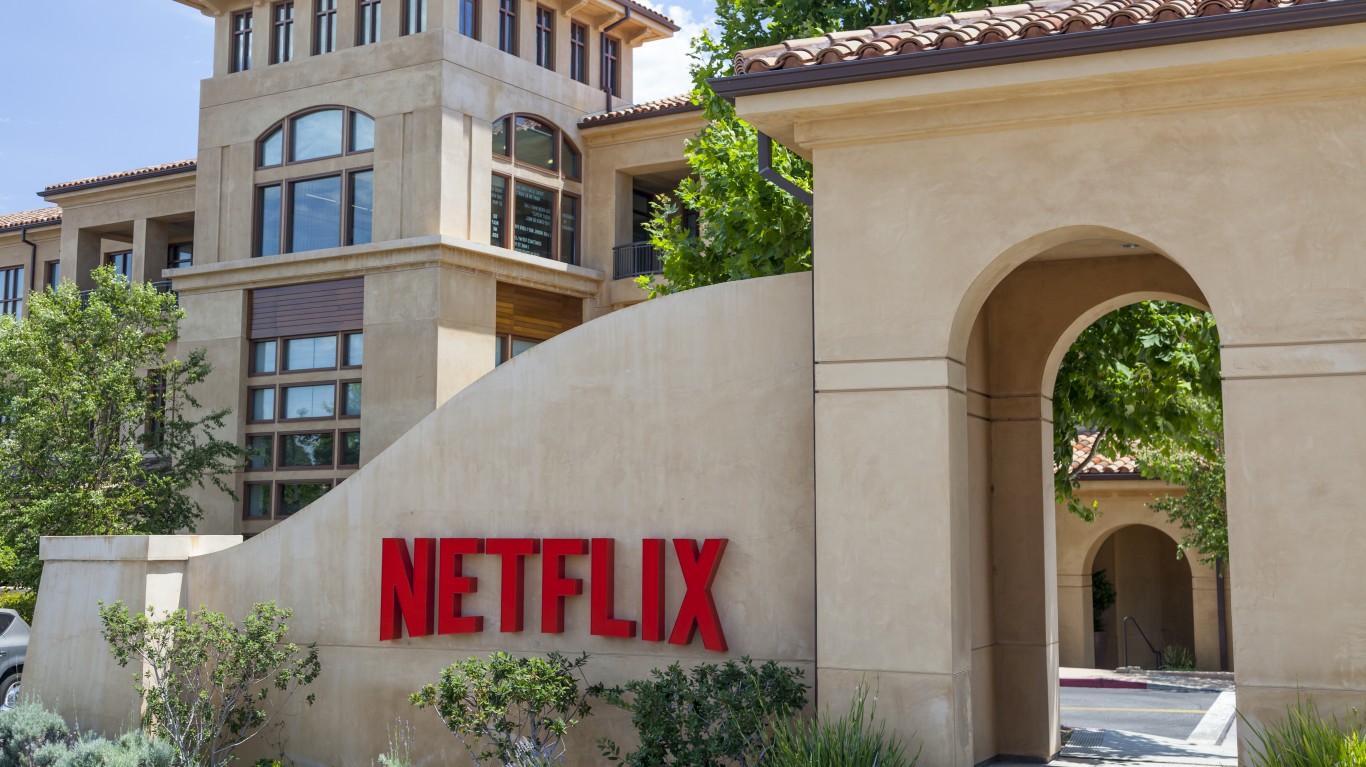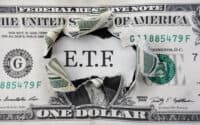 The owners of the Los Angeles Dodgers have recently agreed to sell the team, following a bankruptcy filing in June of this year. The team may sell for more than $1 billion — the highest in baseball history and a premium on the $800 million value Forbes has assigned it in its annual ranking.
The owners of the Los Angeles Dodgers have recently agreed to sell the team, following a bankruptcy filing in June of this year. The team may sell for more than $1 billion — the highest in baseball history and a premium on the $800 million value Forbes has assigned it in its annual ranking.
24/7 Wall St. set out to identify the teams that were likely to follow the Dodgers down a similar path. Teams lose money because they lose fans. Teams lose fans because they lose games. 24/7 Wall St. has identified teams that are on the brink of collapse by measuring long-term financial performance, as well as win/loss records and attendance.
Read The Seven Pro Teams On The Brink Of Collapse
The greatest single cause of a team’s long-term success is obvious: whether or not it wins games. A quick glance at profit and attendance shows that, generally, teams that do well enough to make the playoffs manage to have high ticket sales. Only a few franchises can fail to make the playoffs for more than a few seasons before their profits begin to suffer.
Across the four biggest sports in the U.S., several teams have seen a massive decline in their attendance. While in some cases this is the result of moving to a new stadium with lower capacity, for the most part these teams simply do not win enough games. At the beginning of the decade, the Indiana Pacers were regular playoff contenders with high attendance, and they were profitable. For the past five seasons, they have lost more games than they have won. During that period, attendance has fallen by nearly 25%. The team has also lost money five years in a row.
According to Forbes, 39 of the 122 professional sports teams lost money last year. Some have lost a few million only a handful of times and likely will perform well in the future. For others, the loss is in the tens of millions and represents yet another season without positive net income. The Phoenix Coyotes, which went bankrupt in 2009 and were bought by the NHL, have lost money for at least 10 years straight. In all, since 2001, the team has lost $118 million. Compared to the Dodgers’ value of more than $1 billion, the Coyotes’ estimated value in 2010 was $134 million.
24/7 Wall St. identified teams that lost money for several years, based on Forbes estimates of income and value. Win-loss records and attendance numbers for a ten-year period from ESPN were used to demonstrate a down trend in performance and poor fan support. 24/7 Wall St.’s pro teams on the brink of collapse had consecutive years of losing money, poor win-loss records and declining attendance.
These are the seven pro teams on the brink of collapse.
1. Phoenix Coyotes
> 10-year change in attendance: -16.40% (third-biggest decline in NHL)
> W-L record 10 years: 329-310-38-61 (sixth worst in NHL)
> Operating income (2010): -$20 million
> Year founded: 1972 (moved to Phoenix in 1996)
> Value: $134 million (the least valuable in the NHL)
The Coyotes are one of the newest teams in the NHL, having moved from Winnipeg in 1996. According to Forbes, the Phoenix franchise is the least valuable in the NHL, worth just $134 million as of 2010. In contrast, the New York Rangers are worth more than three times as much. Between 2001 and 2010, the Coyotes lost money every single year, or a grand total of $118 million in losses over a nine-year period. In 2009, the losses were so high that the team declared bankruptcy. Eventually, the NHL ended up buying the team. Despite the fan draw of coach and hockey legend Wayne Gretzky, as well as making the playoffs two years in a row (after missing them six seasons in a row), attendance remains low.
Also Read: The Major League Teams Americans Bet On The Most
2. Minnesota Timberwolves
> 10-year change in attendance: -12.88% (sixth biggest decline in NBA)
> W-L record 10 years: 339-481 (sixth worst in NBA)
> Operating income (2010): -$7 million
> Year founded: 1989
> Value: $264 million (second least valuable in NBA)
The Minnesota Timberwolves have missed the playoffs seven years in a row now, and with the NBA season in jeopardy, that streak could extend to eight. Looking at the past decade, the team has the sixth worst cumulative record in basketball. In the past few years, the team’s performance has been even worse. The team has won 56 games combined in the past three seasons, a number that five teams have surpassed in past season alone. Minnesota has lost money every year but one since 2004, and it is bound to lose a lot more if the lockout continues.
3. Sacramento Kings
> 10-year change in attendance: -19.79% (third biggest decline in NBA)
> W-L record 10 years: 410-410 (12th best)
> Operating income (2010): -$10 million
> Year founded: 1945 (moved to Sacramento in 1985)
> Value: $293 million (seventh least valuable in NBA)
Compared to the other NBA teams on this list, the Sacramento Kings still have a legitimate shot at recovery in the next few years, but their past few seasons have certainly put the team in a tight spot. At the beginning of the decade, the Kings were in the middle of an eight-season streak of making the playoffs, and during the 2001-2002 season were considered one of the best teams in basketball. The team has not made the playoffs since 2006, however, and increasingly poor performance has been a major drain on ticket sales. Since the 2000-2001 season, attendance has dropped nearly 20%. Net income has dropped four years in a row, and the team lost money in 2009 and 2010.
Also Read: The 20 Major League Teams With The Most Expensive Tickets
4. Indiana Pacers
> 10-year change in attendance: -24.32% (second biggest decline in NBA)
> W-L record 10 years: 399-421 (15th worst)
> Operating income (2010): -$17 million
> Year founded: 1967
> Value: $269 million (fourth least valuable in NBA)
The Indiana Pacers have not been in the black since 2005. Including 2010’s $17 million net loss, the team has cumulatively lost $52 million in five years. The team made the playoffs last year, ending a four-year drought, but then lost in five games to the Chicago Bulls. Attendance has declined precipitously since 2001, when the team was two years removed from a six-game loss in the championship to the Los Angeles Lakers. In 2001, the team averaged attendance of 17,888 per home game. In 2009, the team cut ticket prices by 30%, hoping to attract fans, but so far it has had little success. Last year, the Pacers averaged 13,538 people per home game, easily the worst in the league.
5. New York Islanders
> 10-year change in attendance: -2.40% (eighth biggest decline in NHL)
> W-L record 10 years: 316-322-30-70 (fourth worst in NHL)
> Operating income (2010): -$4 million
> Year founded: 1972
> Value: $151 million (fifth least valuable in NHL)
The New York Islanders have the fourth-worst record in the NHL over the past 10 seasons, winning just 316 of their 738 games in regulation time. On top of this, the Islanders compete in a regional market with the New York Rangers and the New Jersey Devils. Both teams have had far greater success and are profitable. In 2001, the Islanders netted a profit of $1 million, compared to $6 million by the Devils and $60 million by the Rangers. Since that year, the franchise has failed to make a profit, losing $64 million cumulatively through 2010.
6. Detroit Lions
> 10-year change in attendance: -25.18% (the biggest decline in NFL)
> W-L record 10 years: 39-121 (the worst in NFL)
> Operating income (2010): -$8 million
> Year founded: 1929 (moved to Detroit in 1934)
> Value: $844 million (seventh least valuable in NFL)
While Detroit has certainly experienced increasing financial troubles, the team may be in the midst of turning its fortunes around. The Lions are currently 6-2, and the team is tied with several others for the third-best record in the NFL. If they continue to win, they could become a profitable NFL franchise again. However, stepping back from this year for a moment paints a less rosy picture. In the previous 10 seasons, the Lions have won just 39 out of 160 games, easily the worst record in the NFL. This includes the 2008 season, when the team became the only franchise ever to fail to win a game in the 16-game schedule. The team moved from the Silverdome in 2002 to Ford Field, hoping to save money, but even in the smaller stadium the team usually averages well below the 65,000 person capacity. While the franchise was profitable for the first half of the decade, the Lions lost money in four of the past five seasons, including the $8 million lost last year.
Also Read The 12 Major League Sports Teams Running Out Of Fans
7. Columbus Blue Jackets
> 10-year change in attendance: -23.67% (biggest decline in NHL)
> W-L record 10 years: 285-356-24-73 (the worst in NHL)
> Operating income (2010): -$7 million
> Year founded: 2000
> Value: $153 million (sixth least valuable in NHL)
The Columbus Blue Jackets joined the League in 2000, the same year as the Minnesota Wild. Since they joined, the Jackets have won just 38% of their nonplayoff games in regulation time, and have not won a single playoff game (despite making the playoffs once in 2008-2009 season). In its first few years, the Columbus franchise managed to record profits, but as one disappointing season after another set in, attendance has begun to decline rapidly. This season, even after the team added several expensive players in marquee trades, they are off to another horrible start, with just two wins in 14 games.
Michael B. Sauter
The #1 Thing to Do Before You Claim Social Security (Sponsor)
Choosing the right (or wrong) time to claim Social Security can dramatically change your retirement. So, before making one of the biggest decisions of your financial life, it’s a smart idea to get an extra set of eyes on your complete financial situation.
A financial advisor can help you decide the right Social Security option for you and your family. Finding a qualified financial advisor doesn’t have to be hard. SmartAsset’s free tool matches you with up to three financial advisors who serve your area, and you can interview your advisor matches at no cost to decide which one is right for you.
Click here to match with up to 3 financial pros who would be excited to help you optimize your Social Security outcomes.
Have questions about retirement or personal finance? Email us at [email protected]!
By emailing your questions to 24/7 Wall St., you agree to have them published anonymously on a673b.bigscoots-temp.com.
By submitting your story, you understand and agree that we may use your story, or versions of it, in all media and platforms, including via third parties.
Thank you for reading! Have some feedback for us?
Contact the 24/7 Wall St. editorial team.



